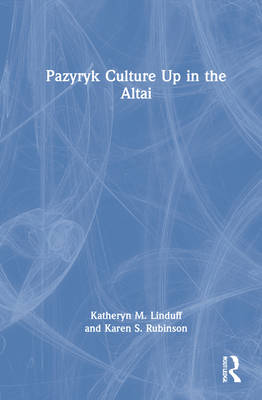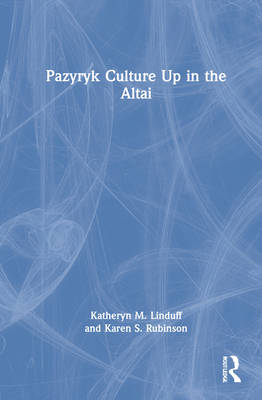
- Retrait gratuit dans votre magasin Club
- 7.000.000 titres dans notre catalogue
- Payer en toute sécurité
- Toujours un magasin près de chez vous
- Retrait gratuit dans votre magasin Club
- 7.000.000 titres dans notre catalogue
- Payer en toute sécurité
- Toujours un magasin près de chez vous
Description
This book reconsiders the archaeology of the Pazyryk, the horse-riding people of the Altai Mountains who lived in the 4th-3rd centuries BCE, in light of recent scientific studies and excavations not only in Russia but also Kazakhstan, Mongolia and China, together with new theories of landscape.
Excavation of the Pazyryk burials sparked great interest because of their wealth of organic remains, including tattooed bodies and sacrificed horses, together with superb wooden carvings and colorful textiles. In view of this new research, the role of the Pazyryk Culture in the ancient globalized world can now be more focused and refined. In this synthetic study of the region, the Pazyryk Culture is set into the landscape using recent studies on climate, technology, human and animal DNA and local resources. It shows that this was a powerful, semi-sedentary, interdependent group with contacts in Eurasia to their west, and to their east in Mongolia and south in China.
This book is for archaeologists, anthropologists, art historians, social and economic historians as well as persons with general interests in mobile pastoralism, the emergence of complex societies, the social roles of artifacts and the diverse nature of an interconnected ancient world.
Spécifications
Parties prenantes
- Auteur(s) :
- Editeur:
Contenu
- Nombre de pages :
- 158
- Langue:
- Anglais
Caractéristiques
- EAN:
- 9781138315358
- Date de parution :
- 31-12-21
- Format:
- Livre relié
- Format numérique:
- Genaaid
- Dimensions :
- 156 mm x 233 mm
- Poids :
- 452 g







